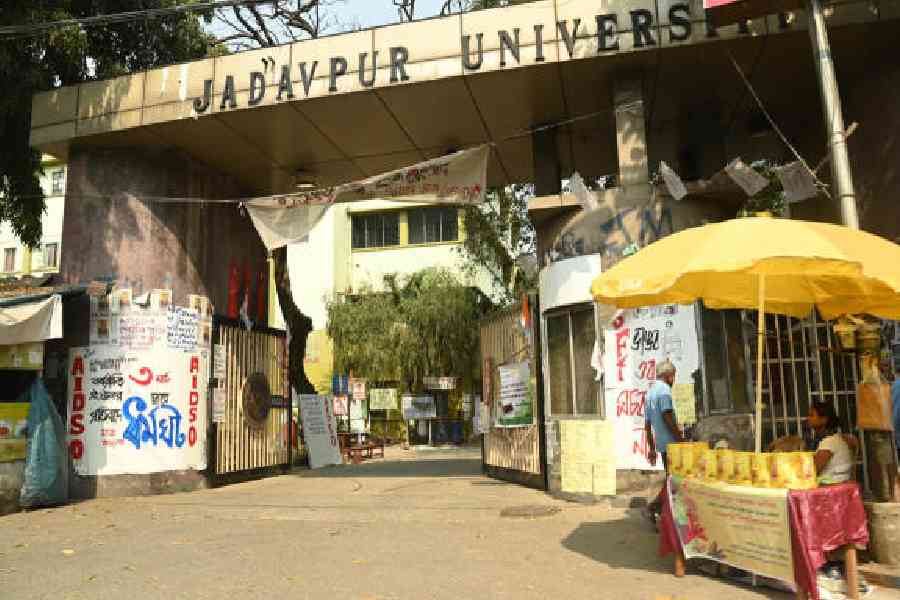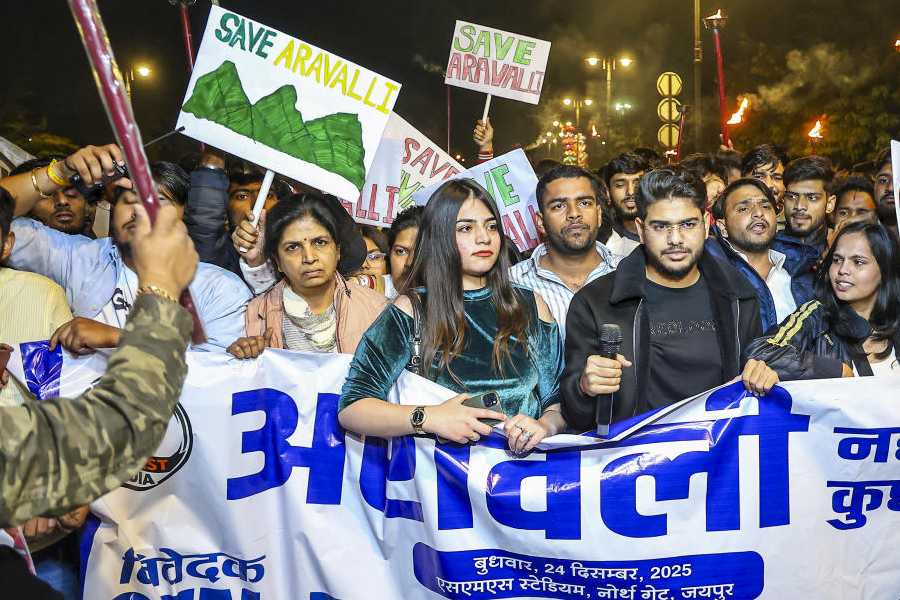 |
 |
| Manmohan Singh and (right) Barack Obama |
New Delhi, Sept. 19: Foreign minister Salman Khurshid today denied suggestions that the UPA government is trying to circumvent India’s nuclear liability law in its proposed contract with US firm Westinghouse ahead of Prime Minister Manmohan Singh’s visit to Washington later this month.
Khurshid was reacting to reports that attorney-general Goolam Vahanvati had told the department of atomic energy that India’s sole nuclear operator, the public sector Nuclear Power Corporation of India Limited (NPCIL), need not seek compensation from suppliers after nuclear accidents.
A television channel also reported that a note before the cabinet committee on security (CCS) is seeking to bypass the nuclear liability law that American firms Westinghouse and GE, the French company Areva and the Russian nuclear corporation ASE have criticised.
“The position we have taken in Parliament, there is no retreating from it,” Khurshid said, referring to the Civil Liability for Nuclear Damage Act, 2010, and the Prime Minister’s assurance to Parliament that the government will adhere to the law. “We have stood our ground. These are the reasons why these matters (inking contracts) have taken such a long time.”
The department of atomic energy, that drafted the note for the CCS, also reiterated that the contract with Westinghouse will be “fully consistent with Indian law”.
“There is no question of Indian law being violated or diluted,” the department said. “This contract, if approved, will not bind the NPCIL to enter into a contract with Westinghouse for the supply of reactors without establishing safety and techno-commercial viability.”
CPM general secretary Prakash Karat, who pushed his party into jettisoning support to the UPA in its first term over the Indo-US nuclear deal in 2008, earlier in the day dubbed any attempt to “dilute” the liability law an “illegal act”.
“The effort of the Manmohan Singh government to dilute the Civil Nuclear Liability Act to exempt US suppliers of reactors from the liability clause will be an illegal attempt to bypass the law passed by Parliament,” Karat said.
The BJP’s Ravishankar Prasad said any attempt to exempt nuclear suppliers from liability would “simply be not acceptable”, and demanded that the Prime Minister should not “bypass Indian laws to try and show some trophies in far away countries”.
But both the note that the department of atomic energy (DAE) is placing before the CCS — which The Telegraph has seen — and multiple interviews with senior government officials in the lead-up to the Prime Minister’s visit point to complex diplomatic negotiations with the US, rather than any simple “sellout”.
The Q&A below answers key questions about the debate, and explains why it is unlikely that the government will award Westinghouse any blanket exemption from liability.
What is the contract that India and the US plan to sign ahead of, or during the PM’s visit to Washington later this month, and what the note for the CCS is about?
This is a preliminary contract between the NPCIL and Westinghouse, to begin preparatory work for six nuclear reactors with a total capacity of 6,600MW that India plans to set up in Mithi Virdi, Gujarat, as The Telegraph had reported on August 7, 2013.
What does the CCS note say?
The note specifies that the contract will be worth a maximum of $15.16 million (Rs 93 crore). It accepts that viability studies on the Mithi Virdi projects are not yet complete. It does not suggest or even indicate either any amendment to the liability law or an exemption from liability for Westinghouse.
What are the concerns of nuclear manufacturers over India’s liability law?
Section 17(b) allows the NPCIL the right to seek recourse from suppliers like Westinghouse after the Indian operator has compensated victims for any accident — if the incident is a result of “patent or latent defects or sub-standard devices”. The maximum liability of the supplier under this section is effectively Rs 1,500 crore.
Section 46 exposes suppliers to domestic tort law under which citizens can take them to court for compensation after any accident, if they can show it was because of the supplier’s fault. The compensation in such a case would be decided by the courts.
Are the concerns restricted to foreign firms?
No. Domestic manufacturers of nuclear components and reactors like Larsen and Toubro have also raised concerns.
What has Vahanvati told the DAE?
He has cited Section 17 (a) of the liability law that says that the operator can seek recourse if “expressly provided for in a contract” to point out that hypothetically, the NPCIL need not seek recourse in its contract.
He had said the same last year, in the context of the nuclear reactors India is purchasing from Russia.
Isn’t that the same as the NPCIL exempting Westinghouse?
Not necessarily. Most lawyers believe that 17 (a) and 17 (b) are independent clauses, and even if no recourse is mentioned in the contract, 17(b) holds. A blanket exemption to Westinghouse is something the government is not contemplating ahead of the Lok Sabha elections.
What the government is trying to do is to limit, under specific contracts, the time period within which it will claim any defects. Once that time period — say 5 years after the signing of the contract — lapses, the government automatically loses the right to claim that the reactor had any defects, and so cannot claim recourse under 17 (b).
But this has been the government’s position with Russia, France and the US, and is not new.
What are the viability studies that the CCS note mentions?
The studies by the NPCIL and the atomic energy establishment will evaluate the safety and the economic viability of the project, given the costs of the nuclear reactors — expected at over Rs 40,000 crore.
In that case, is the preliminary contract a case of the cart before the horse?
Theoretically, the NPCIL could eventually conclude that the project is not viable — a situation in which India will not purchase the reactors despite its initial investment of up to Rs 93 crore. But this initial amount is much less than even 1 per cent of the total cost India plans to incur on buying the reactors. It is important to begin preparations for the project.
It signed such an agreement with Russia too, for the Kudankulam 1 and 2 reactors.
Is there a strategic reason why India is signing this preliminary contract?
Yes. The US nuclear industry and the US Congress are pressuring the Obama administration for outcomes of the Indo-US nuclear deal under which a largely bipartisan Washington exempted India from its domestic laws that bar nuclear trade with nations outside the Non-Proliferation Treaty. The preliminary contract is a way devised by the Indian and US administrations to temporarily ward off critics while they continue to try and resolve their persisting differences over the nuclear liability law.











